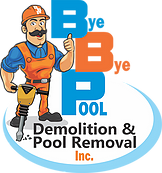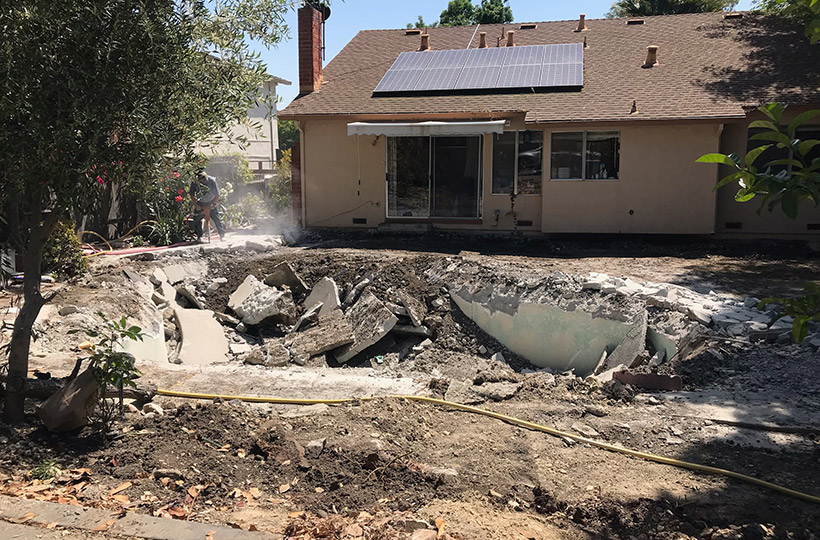Choosing a pool removal contractor is an important decision. Pool demolitions have become very popular over the last few years, enticing general contractors to offer pool removals as a new service. However, if you choose a pool removal contractor who doesn’t have the knowledge, equipment, or insurance necessary, you could end up with a real problem where your pool once stood.
Here are a few key things to look for when choosing your pool removal contractor.
1. Make Sure The Contractor Will Get the Permits
Most municipalities in California require that you get a permit for your pool removal. It is a huge red flag if your pool removal contractor wants you to do this, and not just because it’s a waste of your time.
As a dedicated pool removal company, we’re used to getting permits and often apply for several at the same time. We’ve done it many times, so it’s simple, and we know how to avoid common problems. If your general contractor does not know how to get a permit, they probably don’t know how to do the pool removal, or they aren’t taking the job very seriously.
If they don’t end up getting a permit, you will need to resolve this problem if you want to sell your home or if the municipality catches wind of your project.
2. Check Out The Contractor’s Insurance
As any lawyer will tell you, the first thing you should do during a home improvement project is CYB or Cover Your Butt. Your contractor’s insurance is the only thing protecting you if they make a mistake, one of their employees gets injured, or an accident occurs. Your homeowner’s insurance is not enough to CYB. If you find a pool removal company that has very low coverage compared to other companies, that’s a red flag too.
3. Ask About Fill Material and Strategy
One of the most common mistakes we see on pool removal is improper fill materials or strategy, which can create unstable ground, mud-holes, and other safety hazards.
Whether you’re getting a partial or complete pool demolition, the resulting hole has to be filled with clean fill material, potentially in several layers. Gravel is a common choice for the very bottom of the hole as it helps water drain properly. The top of the hole is generally filled with top soil that can support grass. These layers have to be leveled and tamped.
If you want to build something where your pool was, or would like to sell your home one day, getting a properly filled, leveled and tamped is essential. Some counties will even require your contractor to submit a “Notice of Fill Condition” form to complete the process.
4. Ask About Cost
If your pool demolition contractor is giving you an estimate over the phone, that estimate is very unlikely to be accurate. Pool demolition costs can change dramatically based on the material and depth of the pool. Plus, your local laws about debris handling and removal can add to the cost. To avoid an unexpected bill, choose a pool demolition contractor who performs a free in-home estimate.


Leave A Comment